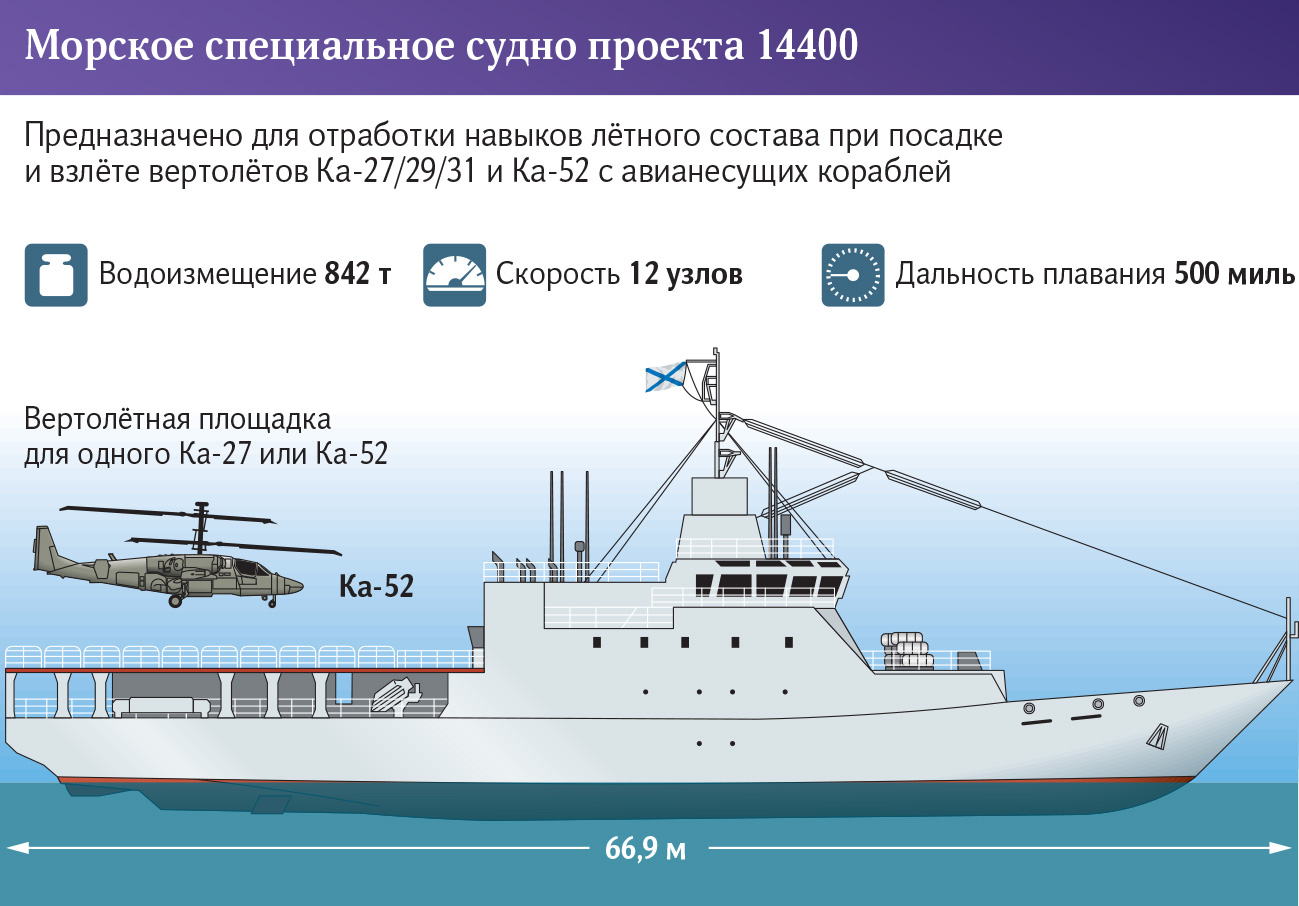Russia has reportedly given the green light to a proposal for the construction and commissioning of a unique vessel, known as the “floating desk,” as part of Project 14400. This specialized vessel is designed to provide training for naval aviation helicopter pilots.
On October 27, the Russian daily newspaper Izvestia, citing sources within the Ministry of Defense, reported that the Ministry of Defense had approved the development of this specialized vessel.
The vessel is set to be launched next year. Notably, this launch schedule is in tandem with the initiation of crew training procedures.
In addition to training helicopter crews, the vessel will also be involved in patrolling missions across various maritime regions.
The increased focus on advancing the 14400 project is linked to the lessons learned from Russian forces’ involvement in the Ukraine conflict.

The vessel, along with its crew, will be assigned the crucial responsibility of instructing helicopter pilots in innovative maritime techniques, including countering the threat of sea-based drones.
The report noted that warship-based pilots require specialized training to ensure their ability to take off and land on the deck, regardless of day or night, various weather conditions, ship motion, and rolling.
The Project 14400 marine vessel, tailored for training helicopter crews, features a length of 66.9 meters, a beam of 12.7 meters, and a draft of 2.1 meters, with a standard displacement of around 850 tons.
The vessel has training equipment for crews operating Ka-27, Ka-29, Ka-31, and Ka-52 helicopters.
On this platform, crew members can engage in training exercises involving landing and take-off procedures, even with the ship experiencing rolling of up to 10 degrees. These training activities can be conducted within a radius of up to 50 miles from the coastline.
In addition to its crew training function, the vessel will also be utilized to assess aviation and technical equipment supporting helicopter flights, electronic aviation control systems, and other intricate gear designed for warships.
Ukraine War Compels Russia To Upgrade Its Naval Helicopter Units
The decision to construct and deploy a vessel known as the “floating desk” seems to align with Russia’s ongoing initiative to improve its naval helicopter units, influenced by the insights gained from their special military operation in Ukraine.
As reported in Izvestia, the project to build the vessel was initially put on hold. However, the experience gained during the Ukraine war highlighted the need for additional training for naval helicopter pilots.
This includes the crucial development of skills in detecting and neutralizing naval drones. Russian experts believe that having a dedicated training platform for this purpose will lead to time and resource savings in the training of pilots, as well as the deployment of warships.
In October, Russian media disclosed that the Navy had initiated the establishment of helicopter detachments specializing in countering surface drones.
These detachments include helicopters such as the Ka-27, Ka-29, and Mi-8. The initial crews have already assumed active combat roles in the Black Sea region.
These helicopter pilots are actively engaged in the development of tactical procedures for locating and neutralizing maritime drones.
Locating such devices is a formidable challenge, given that unmanned watercraft and semi-submersible drones exhibit near-invisibility on the water’s surface, rendering them particularly elusive to radar detection methods.
As previously reported by the EurAsian Times, Ukraine’s deployment of maritime drones has demonstrated the effectiveness of these devices in targeting Russian Navy vessels. Moreover, Kyiv is constantly pursuing plans to produce additional drones to compromise Russian Navy assets further.
In response, Moscow has undertaken a series of measures to mitigate the impact of these drones. Besides improving its naval helicopter units, Russia has also claimed to develop specialized equipment for helicopters to establish direct communication with Russian Navy drones.
This allows the helicopter crew to receive real-time data from drones operating nearby, enabling them to monitor the live feed on their onboard monitors.
Then, the information about the target can be automatically relayed to the helicopter’s targeting and navigation system, which can then be utilized to guide long-range ammunition effectively.
This integration of technology enhances the situational awareness and precision capabilities of the helicopter crews, bolstering their effectiveness in countering maritime threats.
- Contact the author at ashishmichel(at)gmail.com
- Follow EurAsian Times on Google News